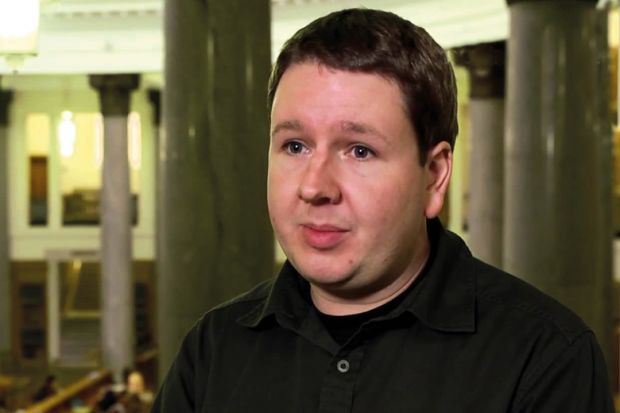Higher education has largely misunderstood what the teaching excellence framework (TEF) is trying to measure, an education academic has argued.
The TEF is not simply trying to assess teaching offered in lectures and classrooms but the “entire teaching function of a university”, Andrew Gunn, a researcher in higher education policy at the University of Leeds, told an education symposium at the University of East London's Cass School of Education and Communities on 6 July.
“It is assessing everything that goes on before admission – from outreach, choosing candidates and interviews – to the actual teaching environment and then everything that students do after graduation,” Dr Gunn explained.
“The ‘T’ in the TEF does not really mean teaching as most staff understand it, but teaching in a very bureaucratic quality assurance sense,” he said.
The proposed policy, which is likely to lead to differentiated tuition fees from September 2019, should be viewed mainly as a tool to improve quality assurance, Dr Gunn added.
“You could argue that we need a new phase of quality assurance, especially with the emergence of a for-profit sector which did not exist in the 1990s when the current system was created,” he said.
Dr Gunn, who is currently researching the TEF and other recent UK higher education reforms, claimed that the framework’s reliance on student satisfaction surveys to identify good teaching would mean that some outstanding educators may not be recognised, while others delivering superficially impressive classes would be praised.
“It’s quite possible that a student could really enjoy a class that was actually totally awful [in content terms],” he said.
“The problem is that undergraduates are not comparing their course with a previous degree they’ve taken,” he added, saying that consumer comparisons are usually informed by experience of a variety of providers.
The research symposium also heard from Sir Peter Scott, professor of higher education studies at UCL Institute of Education, who argued that the TEF has been positioned as the “analogue” or “counterbalance” to the research excellence framework, but had very little in common with the REF.
“The REF is measuring directly outputs of research, but this will not happen with the TEF by definition, so we are falling back on proxy measures of metrics,” said Sir Peter.
While most academics largely agreed on what constitutes research excellence, “we simply do not agree on what excellent teaching looks like”, he added.
Sir Peter believed that many academics “secretly loved” the REF as it often led to greater kudos or bargaining power within universities, but the same would not be true of the TEF.
“Too many people see this as an invasion of their space, their professional autonomy and individual freedom,” he said.
Register to continue
Why register?
- Registration is free and only takes a moment
- Once registered, you can read 3 articles a month
- Sign up for our newsletter
Subscribe
Or subscribe for unlimited access to:
- Unlimited access to news, views, insights & reviews
- Digital editions
- Digital access to THE’s university and college rankings analysis
Already registered or a current subscriber?




